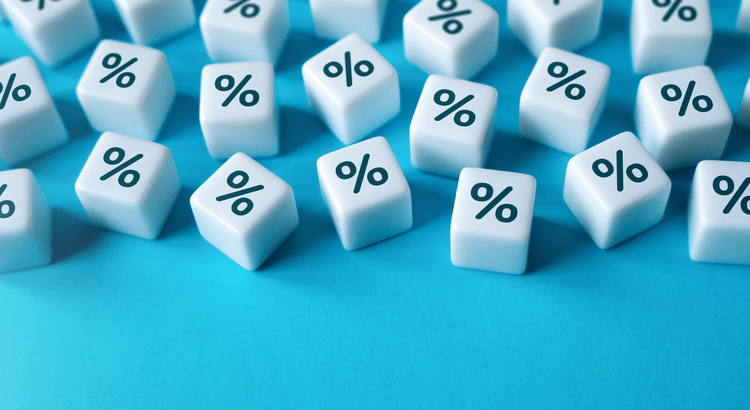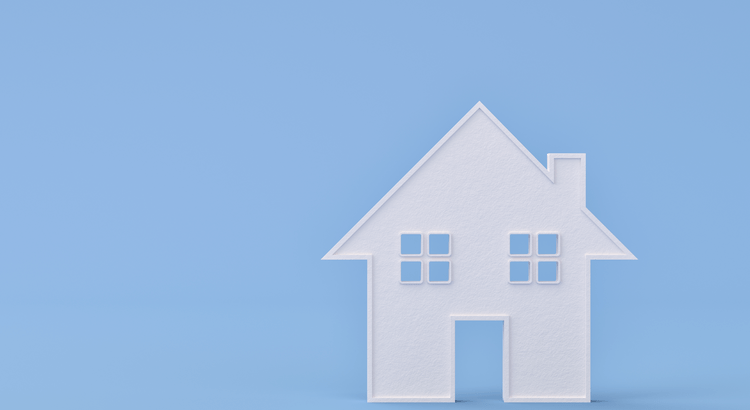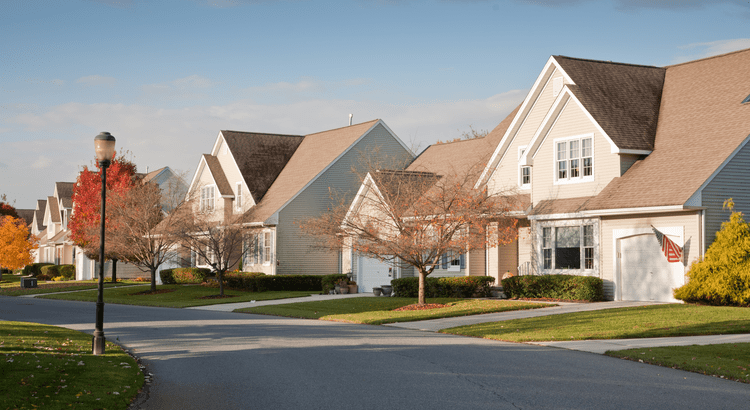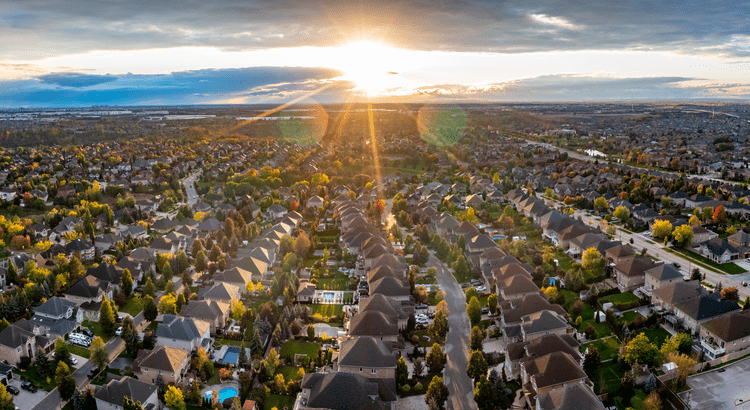
What's the Impact of Presidential Elections on the Housing Market?
Unsurprisingly, the upcoming Presidential election might have you speculating about what’s ahead. And those unanswered thoughts can quickly spiral, causing fear and uncertainty to swirl through your mind. So, if you’ve been considering buying or selling a home this year, you’re probably curious about what the election might mean for the housing market – and if it’s still a good time to make your move.Here’s the good news that may surprise you: typically, Presidential elections have only had a small, temporary impact on the housing market. But your questions are worth answering, so you don’t have to pause your plans in the meantime.Here’s a look at decades of data that shows exactly what’s happened to home sales, prices, and mortgage rates in previous Presidential election cycles, so you can move forward with the facts as you weigh the pros and cons of your homeownership decision.Home SalesIn the month leading up to a Presidential election, from October to November, there’s typically a slight slowdown in home sales (see graph below): Some consumers will simply wait it out before they make their purchase decision. However, it’s important to know this slowdown is small and temporary.Historically, home sales bounce right back and continued to rise the following year.Data from the Department of Housing and Urban Development (HUD) and the National Association of Realtors (NAR) shows after 9 of the last 11 Presidential elections, home sales went up the year after the election, and it’s been happening consistently since the early 1990s (see chart below): Home PricesYou may also be wondering about home prices. Do prices come down during election years? Not typically. As residential appraiser and housing analyst Ryan Lundquist notes:“An election year doesn’t alter the price trend that is already happening in the market.” Home prices generally rise over time, regardless of an election cycle. So, based on what history shows, you can expect the current pricing trend in your local market to likely continue, barring any unusual market or economic circumstances.The latest data from NAR reveals that after 7 of the last 8 Presidential elections, home prices increased the following year (see chart below): The one outlier was from 2008 to 2009, which was during the height of the housing market crash. That was certainly not a typical year. Today’s market, however, is much more resilient. And while prices are moderating nationally, they aren’t on an overall decline.Mortgage RatesAnd the third thing that’s likely on your mind is mortgage rates since they impact your monthly payment if you’re financing a home. Looking at the last 11 Presidential election years, data from Freddie Mac shows mortgage rates decreased from July to November in 8 of them (see chart below): And this year, we’ve already started to see that happen. Most experts also forecast mortgage rates will ease slightly throughout the rest of 2024. If that happens – and all signs right now indicate it should – this year will continue to follow the trend of declining rates. So, if you’re looking to buy a home in the coming months, this could be great news for your purchasing power.What This Means for YouWhat’s the big takeaway? While Presidential elections do have some impact on the housing market, the effects are usually minimal. As Lisa Sturtevant, Chief Economist at Bright MLS, says:“Historically, the housing market doesn’t tend to look very different in presidential election years compared to other years.” For most buyers and sellers, elections don’t have a major impact on their plans. Bottom LineWhile it’s natural to feel uncertain during an election year, history shows the housing market remains strong and resilient. And this means you don’t have to pause your plans in the meantime. Let's connect at Aurhomes Group to help you navigate the market during this election cycle.

What Mortgage Rate Are You Waiting For?
You won’t find anyone who’s going to argue that mortgage rates have had a big impact on housing affordability over the past couple of years. But there is hope on the horizon. Rates have started to come down. And, recently they hit the lowest point we’ve seen in 2024, according to Freddie Mac (see graph below): And if you’re thinking about buying a home, that may leave you wondering: how much lower are they going to go? Here’s some information that can help you know what to expect.Expert Projections for Mortgage RatesExperts say the overall downward trend should continue as long as inflation and the economy keeps cooling. But as new reports come out on those key indicators, there’s going to be some volatility here and there.What you need to remember is it’s not wise to let those blips distract you from the larger trend. Rates are still down roughly a full percentage point from the recent peak compared to May.And the consensus is that rates in the low 6s are possible in the months ahead, it just depends on what happens with the economy and what the Federal Reserve decides to do moving forward.Most experts are already starting to revise their 2024 mortgage rate forecasts to be more optimistic that lower rates are ahead. For example, Realtor.com says:“Mortgage rates have been revised slightly lower as signals from the economy suggest that it will be appropriate for the Fed to begin to cut its Federal Funds rate in 2024. Our yearly mortgage rate average forecast is down to 6.7%, and we revised our year-end forecast to 6.3% from 6.5%.” Know Your Number for Mortgage RatesSo, what does this mean for you and what are your plans to move? If you’ve been holding out and waiting for rates to come down, know that it’s already happening. Based on the expert projections and your +budget, you just have to decide when you’ll be willing to jump back in. As Sam Khater, Chief Economist at Freddie Mac, says:“The decline in mortgage rates does increase prospective homebuyers’ purchasing power and should begin to pique their interest in making a move.” As a next step, ask yourself this: what number do I want to see rates hit before I’m ready to move?Maybe it’s 6.25%. Maybe it’s 6.0%. Or maybe it’s once they hit 5.99%. The exact percentage where you feel comfortable kicking off your search again is personal. Once you have that number in mind, you don’t need to follow rates yourself and wait for it to become a reality.Instead, connect with a local real estate professional. They’ll help you stay up to date on what’s happening and have a conversation about when to make your move. And once rates hit your target, they’ll be the first to let you know. Bottom LineIf you’ve put your moving plans on hold because of higher mortgage rates, think about the number you want to see rates hit that would make you re-enter the market.Once you have that number in mind, let’s connect at Aurhomes Group so you have someone on your side to let you know when we get there.

Today’s Biggest Housing Market Myths
Have you ever heard the phrase: don’t believe everything you hear? That’s especially true if you’re thinking about buying or selling a home in today’s housing market. There’s a lot of misinformation out there. And right now, making sure you have someone you can go to for trustworthy information is extra important. If you partner with a real estate agent, they can clear up some common misconceptions and reassure you by backing them up with research-driven facts. Here are just a few misconceptions they can help disprove. 1. I’ll Get a Better Deal Once Prices CrashIf you’ve heard home prices are going to come crashing down, it’s time to look at what’s happening. While prices vary by local market, there’s a lot of data out there from numerous sources that shows a crash is not going to happen. Back in 2008, there was a dramatic oversupply of homes that led to prices crashing. Across the board, there’s an undersupply of homes for sale today. That makes this market a whole different scenario (see chart below): So, if you think waiting will score you a deal, know that data shows there’s not a crash on the horizon, and waiting isn’t going to pay off the way you’d hoped. 2. I Won’t Be Able To Find Anything To BuyIf this nagging fear about finding the right home if you move is still holding you back, you probably haven’t talked with an expert real estate agent lately. Throughout the year, the supply of homes for sale has grown. Data from Realtor.com helps put this into context. While there are still fewer homes on the market than in a more normal year like 2019, inventory is still above where it was at this time last year (see graph below): So, if you’re remembering all that media coverage about record-low supply during the pandemic, you can rest a bit easier. While the market isn’t back to normal just yet, inventory is moving in a healthier direction. And that means as your options improve, you can let go of this now outdated myth because finding a home to buy won’t feel quite so impossible anymore. 3. I Have To Wait Until I Have Enough for a 20% Down PaymentMany people still believe you need a 20% down payment to buy a home. To show just how widespread this myth is, Fannie Mae says: “Approximately 90% of consumers overstate or don’t know the minimum required down payment for a typical mortgage.” And if you look at the data from the National Association of Realtors (NAR), you can see the typical homeowner isn’t putting down as much as you might expect (see graph below): First-time homebuyers are typically only putting down 6%. That’s far less than the 20% so many people think they need. And if you’re looking at that graph and you’re more focused on how the number of repeat buyers is closer to 20%, here’s what you need to realize. That’s only because they have so much equity built up in their current house that can be used to make a larger down payment for their next move. This goes to show you don’t have to put 20% down unless it’s specified by your loan type or lender. Many people put down a lot less. Not to mention, depending on the type of home loan you get, you may only need to put 3.5% or even 0% down. So, if you’re buying your first home, you likely don’t need nearly as much for your down payment as you may think. An Agent’s Role in Fighting MisconceptionsIf you put your move on pause because you heard one or more of these myths yourself, it’s time to talk to a trusted agent. An expert agent has more data and the facts, just like this, to reassure you and help break through any misconceptions that may be holding you back. Bottom LineIf you have questions about what you’re hearing or reading, let’s connect at Aurhomes Group. You deserve to have someone you can trust to get the facts.
Categories
Recent Posts










